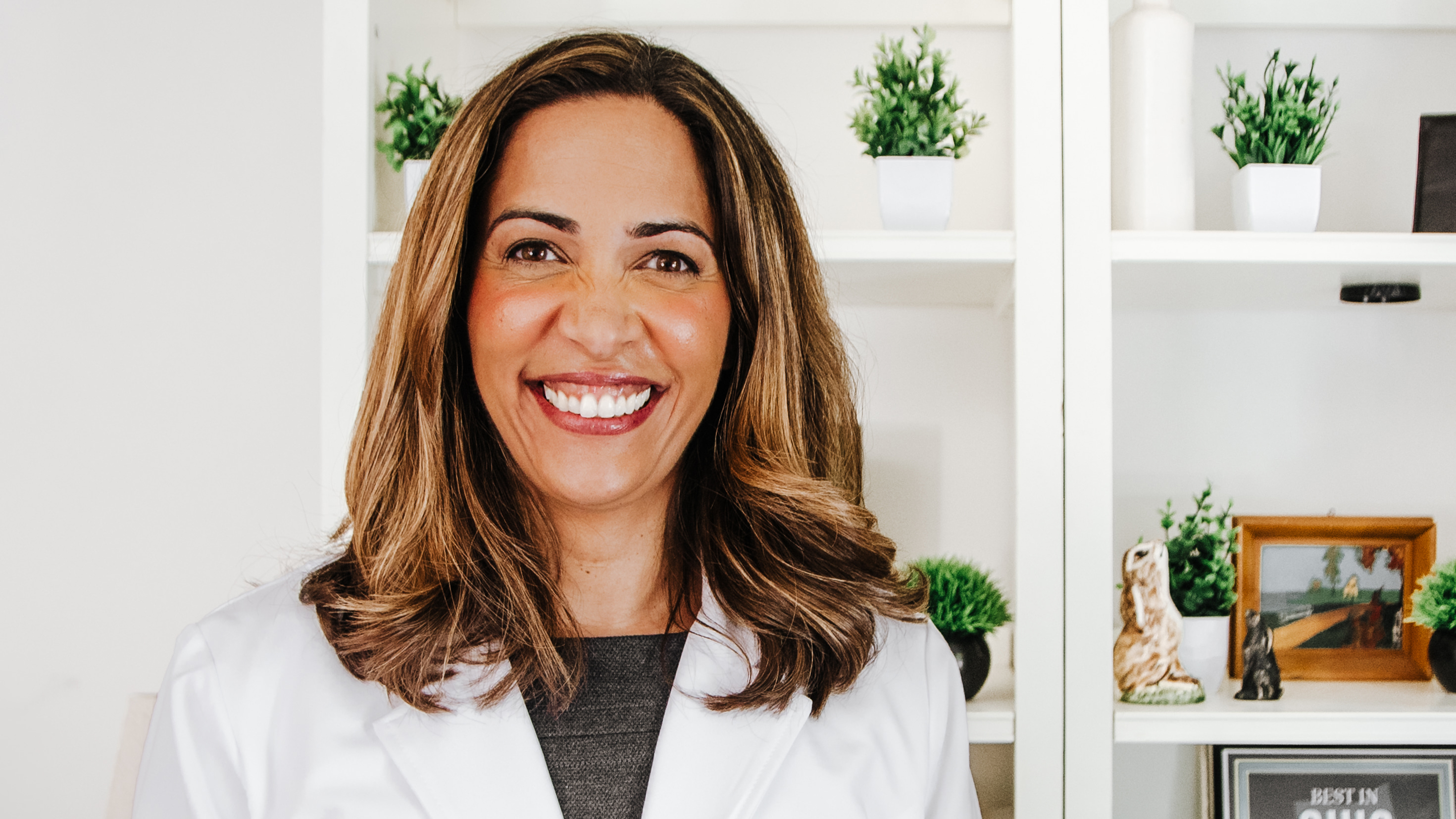Public health alum: Women deserve more than ‘dismissive platitudes about aging gracefully’
Sarah Bonza ’08 MPH brings preventive medicine lens to menopause care
By Kristen Mitchell

Understanding menopause isn't just about managing current symptoms — it's about recognizing a critical health transition that affects a woman’s long-term health outcomes, said Sarah Bonza ’08 MPH, a hospital physician turned menopause specialist.
Bonza, who founded a health practice focused on helping women navigate body and hormonal changes, shares how studying chronic disease prevention and her personal experience looking for answers led her to a career empowering women to make informed decisions about their health.
Question:
What does it mean to be a ‘menopause doctor’?
Being a menopause doctor means understanding the profound shifts that occur in a woman's body during hormonal transition. I take a holistic approach, recognizing that estrogen loss affects body composition, emotional well-being, cognitive clarity and muscle mass — even when health habits remain unchanged. With limited research in this field, I validate each woman's unique experience.
This is a critical period — women face the highest risk for divorce and suicide during menopause. How women navigate this transition determines their long-term health outcomes, including cardiovascular disease, diabetes, dementia, cancer and fracture risk. Understanding that estrogen and progesterone loss impacts not only current quality of life but also aging and longevity is essential for comprehensive menopausal care.
Question:
What inspired your pivot from working as a physician in a hospital to starting Bonza Health?
My transition was deeply personal. At 42, I experienced subtle but concerning changes that my doctor dismissed as normal aging. When testing revealed my upper body strength was only 80% of predicted for my age, I knew "fine" wasn't acceptable for me.
During the COVID-19 pandemic, witnessing how chronic diseases like obesity and diabetes contributed to poor outcomes reinforced my commitment to preventive care. I pursued additional training which gave me the tools to address what traditional medicine often overlooks — the complex interplay between hormones, lifestyle and long-term health outcomes in women.
Question:
Women are often told uncomfortable menopause symptoms like hot flashes, mood changes and brain fog are just something they need to live with. What is your response to that?
For generations, women have been told to "grin and bear it." When doctors say women must "live with it," they're essentially admitting they didn't learn about this in medical school, and their training limits how they can help you.
Effective tools exist to help women — not always hormone therapy, though estradiol and progesterone can provide significant relief. The key is physician education and appropriate referrals. Primary care doctors should recognize when patients need specialized menopausal care and refer to practitioners who understand these complex hormonal transitions. Women deserve comprehensive care, not dismissive platitudes about aging gracefully.
Question:
How does your public health background shape how you approach your work?
My College of Public Health education focused on obesity, chronic disease and women's health, particularly among underrepresented populations. Professor Leon McDougle (in the College of Medicine) inspired my work in chronic disease prevention, while Professor Randall Harris (a professor of epidemiology at CPH) shaped my understanding of epidemiology and population health.
This background drives my preventive medicine approach to menopause care. I understand the behavioral change challenges and societal resistance to health initiatives when they conflict with profitable industries. My epidemiological training helps me recognize patterns and risk factors, while my population health perspective ensures I consider broader health implications beyond individual symptoms. This foundation enables me to address menopause as both a personal health transition and a public health opportunity.
Question:
What advice do you have for current public health students?
Embrace every aspect of your education — epidemiology, health behavior, biostatistics — it's all applicable and critical for impacting medicine and populations. Throughout your career, you'll discover meaningful ways to integrate this knowledge that benefit both individuals and society.
Public health expertise is more valuable than ever as health care costs continue rising. Your training provides unique perspective on prevention, population health and systemic approaches to wellness. Whether you work in clinical settings, policy, research or community health, your foundation in public health methodology and thinking will be invaluable.